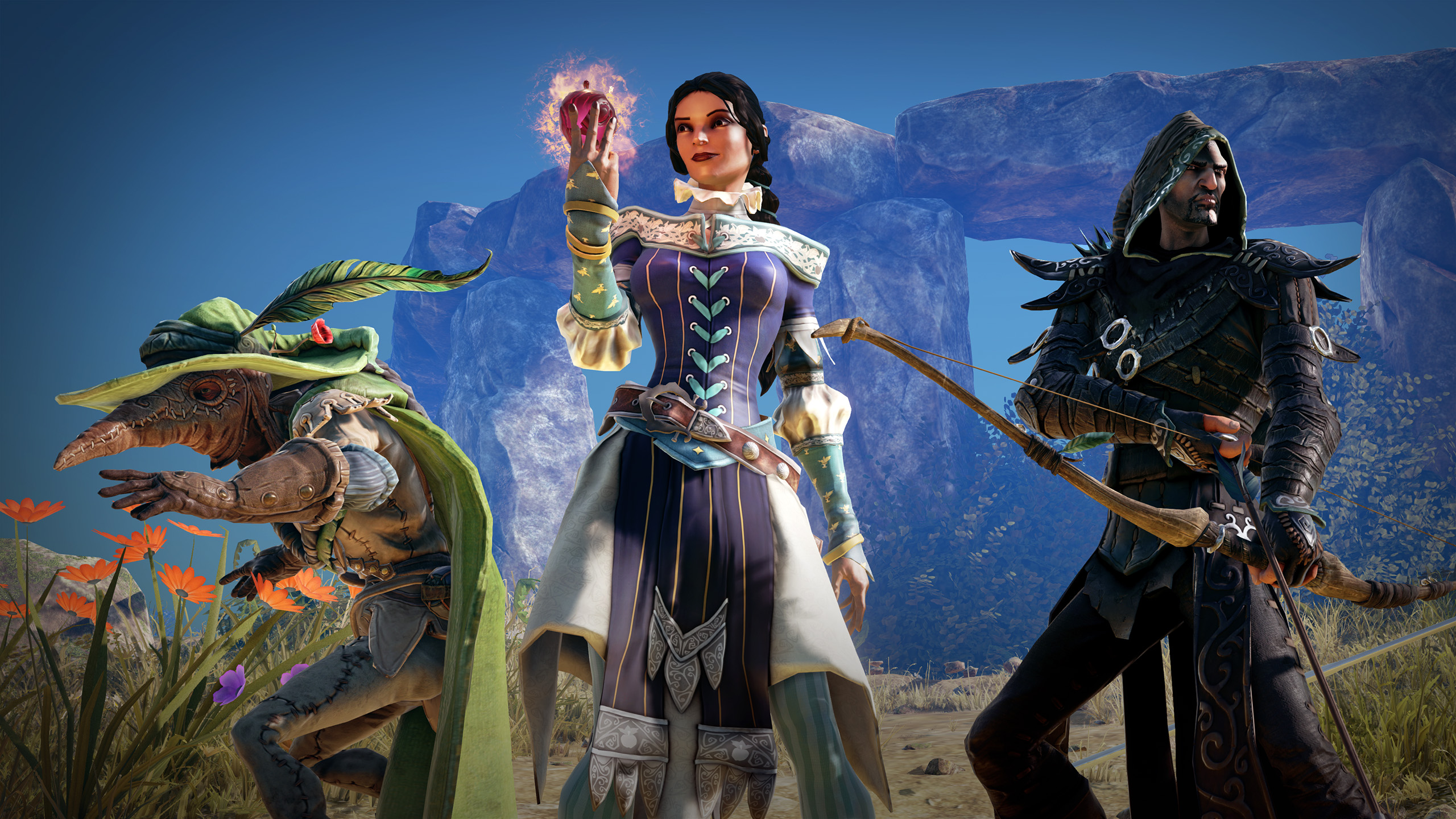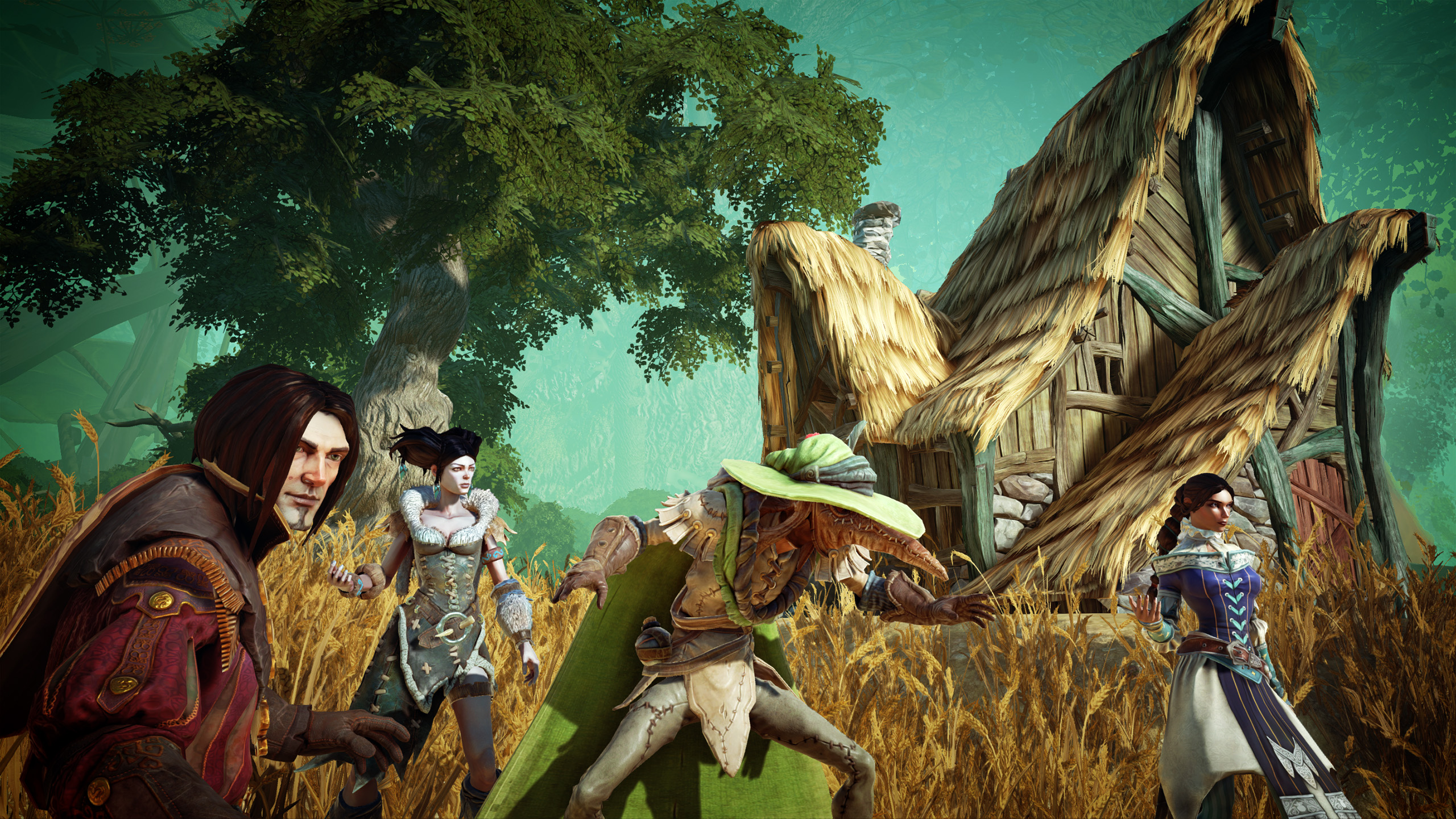The joy of villainy in Fable Legends

All of which is to say that Legends draws on the current MOBA explosion, as well as Lionhead’s lost history as an offbeat strategy developer, right back to the Bullfrog days of Dungeon Keeper and Populous. It’s a melting pot of PC-centric influences. And then I found out it was free-to-play.
It steals League of Legends’ hero rotation—four heroes will be made free to use every two weeks—and Valve’s commitment to fair play, as any item that affects your abilities can be earned with in-game currency or found as loot. Only vanity items making up the pure premium content. This is a game steeped in the language, business and compulsion loops of the current online scene. It’s PC as all hell.
“Right from the off, the big thing with Fable Legends wasn’t about making a business model,” says Stuart Whyte, studio director. “It was about making a game as a service, it was about having a live game that we release but then have a relationship with our players that we’ve never had before.”
This is the final piece of the Legends puzzle: every element is part of a far wider plan than your typical AAA year-long post-release schedule. Quests will be part of seasons of storyline, released regularly, for free. Lionhead employees repeatedly talk about releasing new heroes and villain minions five or ten years down the line. They also plan to have every one tie into the storylines of earlier episodes. With enough clamour, theoretically anything could be added. Studio head John Needham points to the creativity of Steam Workshop as an inspiration (although modding is very much off the table at this point) and doesn’t even totally baulk at the idea of a PC vs Xbox event weekend to determine who the real master race is. It was just a tiny little baulk, really.
Lionhead is, for better and worse, a studio known for big promises, and much of this long-term thinking falls very much into the realm of promise. The difference here is that free-to-play gives the studio a chance to show what it has on offer at precisely no cost to sceptical fans of the older Fable games, or those left nonplussed by the 4v1 conceit.

“A few months after we announced the game, Evolve was announced,” says Eckleberry. “We had no idea that they were going to be developing something similar. Am I sort of relieved not be charging for a $60 box and $150 for DLC? Sure I’m relieved—because that didn’t go over well. The thing I like about free-to-play is that I can tell friends to play and they can’t give me any shit about it. Just play the game. For me, as a game creator, it’s so cool that there’s no barrier there. We can be incredibly fair to our players and offer them something that makes them want to play more.”
It’s as much a freedom to the designers as it is the players—and possibly as good a calling card as Microsoft could have found for their new integrated, cross-platform gaming ideals.
Keep up to date with the most important stories and the best deals, as picked by the PC Gamer team.
A few months after we announced the game, Evolve was announced.
“Make a great game, then worry about the money,” Eckleberry says. And even then, he doesn’t want to worry about the money. “Let the business people handle that... It’s risky, but that’s a risk Microsoft is taking on, not the players. You’re not going to get scammed, it’s not that kind of game.”
Another thought occurs: “And it’s freaking Microsoft, right? We could have the most successful Xbox or Windows game ever and it wouldn’t budge Microsoft’s stock. It’s a huge company that we’re a small part of. It’s more important for us to have a great community, to be out there and say ‘hey, this is a great game that’s on Windows’. It improves gaming on Windows—not as a financial return, but in esteem and respectability. Gaming for Microsoft is a prestige project.”

